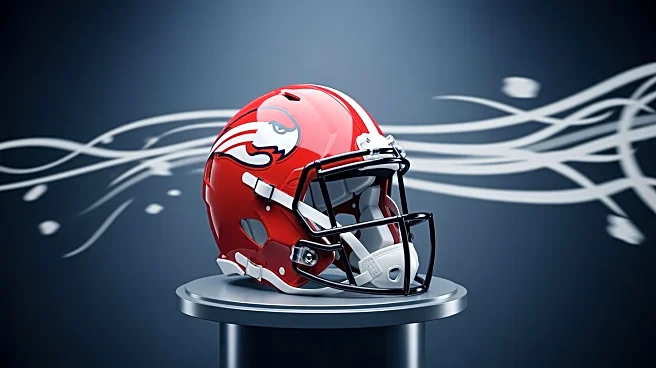What's Happening?
The Seattle Seahawks have acquired wide receiver Rashid Shaheed from the New Orleans Saints in exchange for fourth- and fifth-round draft picks. Shaheed, known for his downfield speed, is expected to enhance Seattle's offensive capabilities as they aim
to secure the NFC West title. The Seahawks currently lead the division with a 6-2 record, and Shaheed's addition is seen as a strategic move to bolster their chances. The trade also impacts the Saints, who are embracing a rebuild after a challenging start to the season.
Why It's Important?
The acquisition of Rashid Shaheed is significant for the Seahawks as it addresses their need for a dynamic complement to Jaxon Smith-Njigba, who has been a standout performer this season. Shaheed's speed will help open up space for other receivers like Cooper Kupp, enhancing Seattle's offensive versatility. This move strengthens the Seahawks' position in the tight NFC West race, potentially giving them an edge over rivals like the Rams and 49ers. For the Saints, trading Shaheed aligns with their rebuilding strategy, providing them with valuable draft picks for future development.
What's Next?
As the Seahawks integrate Rashid Shaheed into their lineup, they will focus on maximizing his impact alongside their existing receiver corps. The team's offensive coordinator, Klint Kubiak, is familiar with Shaheed's playing style, which should facilitate a smooth transition. Meanwhile, the Saints will continue to evaluate their roster and explore opportunities to develop new talent, including Devaughn Vele. The NFC West race remains competitive, and the Seahawks' rivals may seek alternative strategies to strengthen their playoff prospects.
Beyond the Headlines
The trade highlights the strategic maneuvers teams undertake to enhance their competitive edge. For the Seahawks, acquiring Shaheed not only boosts their immediate prospects but also reflects their long-term vision for sustained success. The Saints' decision to trade Shaheed underscores the challenges of rebuilding in the NFL, as they balance short-term losses with future gains. This transaction exemplifies the dynamic nature of team management and the ongoing quest for improvement in professional sports.














